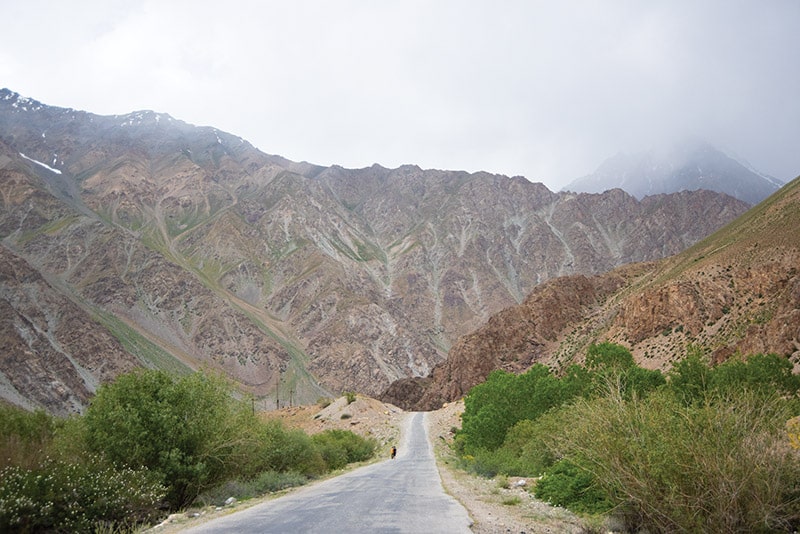In remote Tajikistan, aspiring women launch their own businesses
By Molly Shapiro
Imagine living in one of the most remote places in the world, in a village nestled among some of the tallest peaks on earth. It’s a place where jobs are scarce, the economy is weak, and most everyone struggles to put food on the table. And if you’re a woman, it’s a place with many obstacles and few opportunities.
This is the Gorno-Badakhshan Autonomous Oblast (GBAO) region of Tajikistan, one of the poorest parts of the second poorest country in Central Asia. The villages of GBAO are isolated and hard to reach, particularly in the long winter months. And even though almost 40% of the region’s people live in poverty, the central government provides them with little help.
In GBAO and throughout Tajikistan, it’s common for men to go abroad to find work, mostly to Russia. Roughly 20% of Tajik men leave their families to work abroad, sending a portion of their earnings back home. This means that women are left alone to manage the household, take care of the children, and provide for the family’s basic needs. Sometimes, their husbands send back little, or worse, some never return home at all, choosing instead to build a new life for themselves in their adopted country.
For these poor families, having as many sources of income as possible is essential. But often women struggle to find jobs, and when they do, they often earn only a fraction of what men make. Many have marketable skills such as cooking, knitting, and sewing that could be used to make money. What they lack, however, is the knowledge, training, and experience needed to transform those skills into profitable businesses.
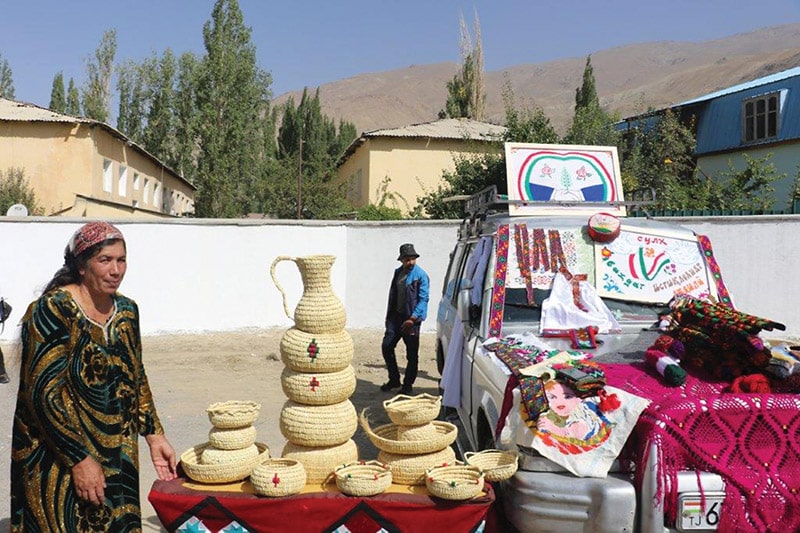
Providing critical knowledge to aspiring entrepreneurs
The ASPIRE program was launched by the Central Asia Institute Tajikistan (CAIT) in 2019 to provide the women of the GBAO region with the business know-how they need to generate income from the traditional skills they already possess. ASPIRE uses curricula and trainers from the University of Central Asia to create entrepreneurship modules in subjects such as accounting, sales, business management, and finance. It then offers a 10-day workshop to 25 to 30 female participants, teaching them things like how to design a business plan, create a budget, analyze markets, and perform basic accounting. ASPIRE also connects these women to national women’s business associations, introduces them to potential mentors, and shows them how to apply for loans.
In just a few short years, ASPIRE has already had a big impact on these aspiring female entrepreneurs, as well as their families and communities. Here are just a few examples of some of the women whose lives were changed by CAIT’s groundbreaking program.
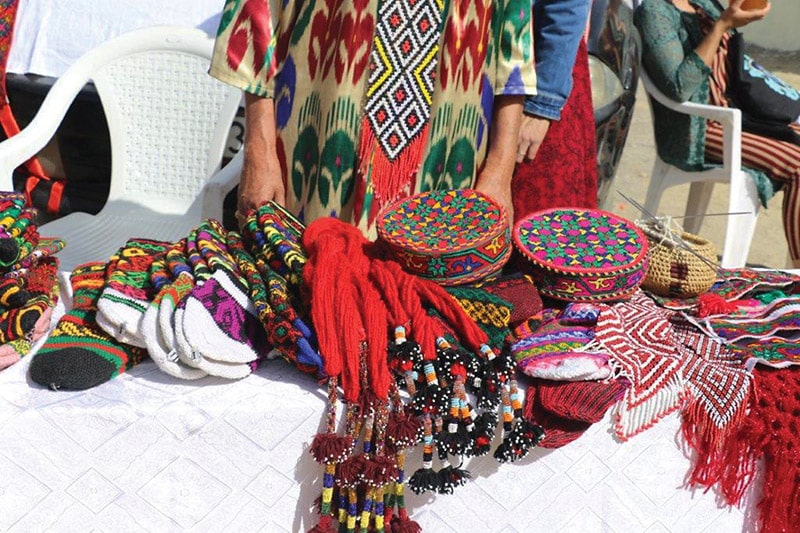
Gaining valuable knowledge, then passing it on to others
Fakhriya Dovutova, who lives in Porshenev village of the Shugnan district, attended university but could not find work after graduating. “I was jobless and sitting at home,” she said. “It was hard to find money to get necessary things and food for my child.”
So she decided to start a business sewing and selling dresses to her friends and neighbors. “I became popular,” she explained. But when she took out a loan to expand her business, she realized that she lacked the financial literacy she needed to ensure her success.
Fakhriya asked her friends if they knew of any business courses she could take. She later got a call from a staff member at the Women Affairs Committee, telling her about ASPIRE’s 10-day workshop.
“I was not sure about doing it because I was very busy with sewing,” she said. But after attending the first day, she decided to stay for the entire workshop. “I feel I am the lucky one having the chance to attend this training. I learned how to plan my family budget, daily calculation of money and income, managing money, and saving money,” said Fakhriya. “The training changed my life.”
Just one month after the workshop, Fakhriya hired two women to help with her business. “I am teaching sewing skills and sharing knowledge with the ladies to make them successful like me,” she said. Her intention is to make sure the benefits of ASPIRE’s training don’t end with her. “My plan is to open my own sewing workshop and involve more housewives.”
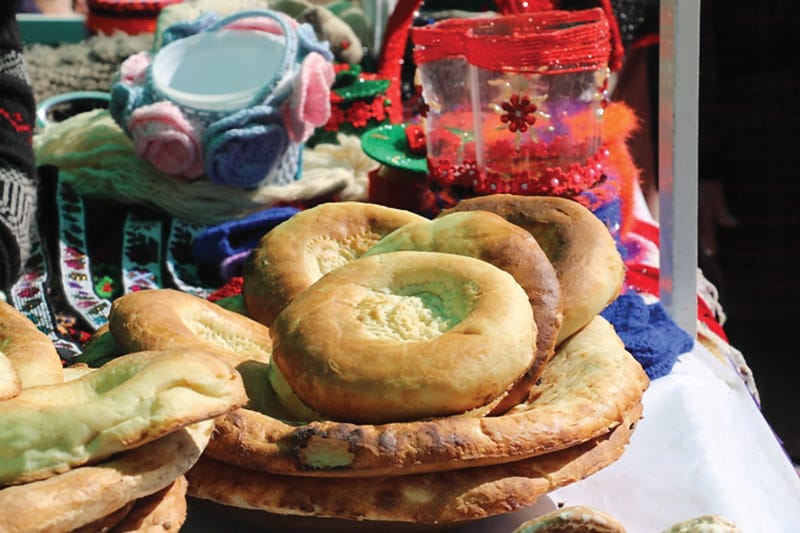
An aspiring baker meets the demand for bread in her village
Zarnisso is a mother of four children who was struggling to make ends meet after her husband went to Russia to find work. Things got very difficult during the pandemic because her husband wasn’t able to send money home. Zarnisso went to Russia herself to try to make money but couldn’t bear to leave her kids at home alone. “Life was hard,” she remembered.
Zarnisso knew that she had many skills that could be lucrative—including sewing, knitting, baking, cooking, and gardening—but she didn’t have the seed money or the knowledge needed to start a business. Fortunately, she did have the support of her fellow villagers, one of whom told her about ASPIRE and offered her the chance to attend the workshop.
“During the 10 days I felt that I am one of the skillful women with craft skills,” she recalled. “In the training, all my fear and worry had gone. I decided to take a risk and bravely started to bake kulcha.” Zarnisso took the round flatbreads to a local shop to be sold. With the money she earned, she bought more flour so she could bake more bread. “In this way, I increased my income,” she explained. “I started to save money for my children’s needs, as we learned in the training.”
“I feel a great improvement in my life,” Zarnisso said. “I am sharing the training information with my children, who help me in making kulcha. I am planning to get a better oven to make quality kulcha, as there is big demand.” Already, Zarnisso is receiving a lot of orders from neighbors and friends who want her kulcha for weddings and other events.
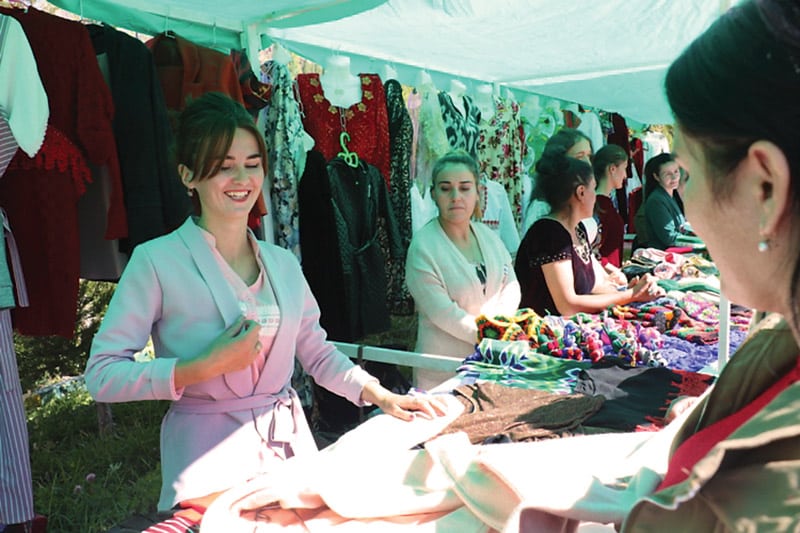
Finding the courage to start a business and sell her wares
Lojvar lives in Sharikkhona village in the Shugnan district. Like the other villagers, she and her family have a small plot of land, but it wasn’t enough to sustain them. When she married her husband, he wasn’t working, so they didn’t have enough money to buy food. But despite her troubles, Lojvar said: “I am a happy woman because I have crafting skills learnt from my grandmother and my mother.
I was involved in knitting, weaving, and doing other traditional things for weddings with my mother.” Lojvar was new to the village, so she wasn’t comfortable selling things to her neighbors, who weren’t yet aware of her talents. Instead, she made products and sent them to her mother in another village to sell. But things changed after she attended the ASPIRE workshop.
“Luckily, after attending the training I got courage. My fear disappeared, and I gained enough finance literacy,” she said. “Today, I am freely selling milk and making Pamiri socks and slippers from natural wool. My plan is to get a new machine for weaving and spinning.”
Like other women who participate in the ASPIRE program, Lojvar wanted to impart her learning to others and inspire them to achieve their dreams. “As we learned from the training, I want to become a successful woman and teach others, too,” she said. “Therefore, I am planning to open a mini workshop and create jobs for other housewives in my village.”
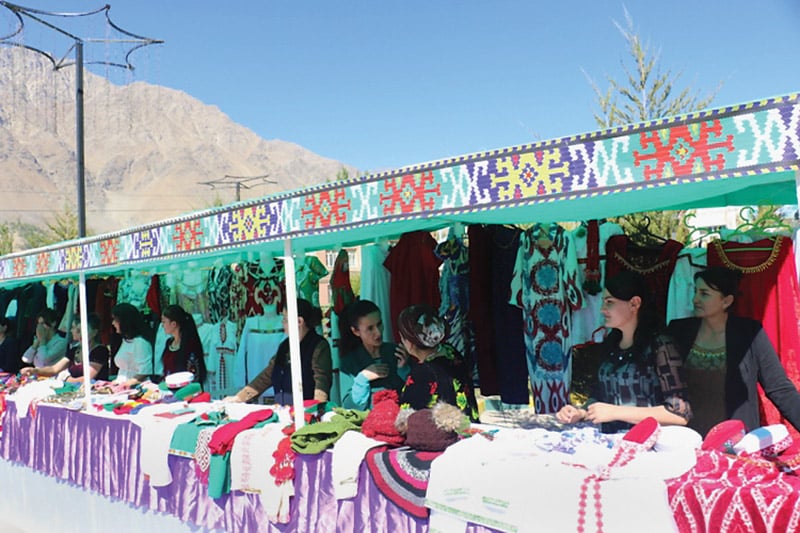
The impact of the ASPIRE program is only beginning
Thus far, 170 women from GBAO have received training through ASPIRE, and 119 of them have started businesses selling products such as clothing, mattresses, pillows, socks, slippers, and bread. But there are many more women who want to take part in this type of training, and CAIT’s goal is to meet that growing demand.
Looking ahead, CAIT intends to offer this training in more districts to more women, supplementing the courses with increased financial support and mentoring opportunities for graduates.
The importance of doing this work is clear. For women like Fakhriya, Zarnisso, and Lojvar—women who had nowhere else to turn in their time of need—ASPIRE has succeeded in transforming their lives. This groundbreaking program has provided hope and stability to their families, and it has bolstered the economy and living conditions of their entire communities.
